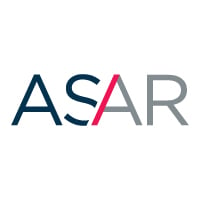

Chief legal officer | Alghanim Industries



Fawaz Alawadhi
Chief legal officer | Alghanim Industries
Team size: 60
Major legal advisors: ASAR
Jurisdictions your role covers: Middle East, North Africa, Türkiye, India, Southeast Asia, and beyond
What are the major cases or transactions you have been involved in recently?
Recently, I led the successful sale of Alghanim Trading Company’s majority stake (33.3%) in Gulf Bank to Warba Bank. This complex and high-profile transaction required managing the entire process end-to-end, from initiating and steering negotiations, drafting and refining transaction agreements, to securing all necessary regulatory approvals within the tight contractual deadline of three months. The approvals were obtained from the Capital Markets Authority, the Central Bank of Kuwait, and the Competition Protection Authority. The deal’s timely execution was the result of close coordination between our internal teams and regulators, ensuring compliance with all statutory requirements while safeguarding the commercial objectives of both parties.
In parallel, I oversaw the negotiation and execution of a first-of-its-kind agreement in the region with Starlink, appointing SamaX, a subsidiary of Alghanim Industries, as an authorised distributor for Starlink services across a vast and strategically important footprint, including the Middle East, North Africa, India, Türkiye, Pakistan, and other key markets. This landmark deal was driven under the leadership of my colleague and leadership partner, Elias Sayegh, supported by our in-house legal team, Sarah Mattar and Ghada Sammur, and required navigating complex cross-border regulatory considerations, structuring a scalable commercial framework, and aligning contractual terms to support long-term growth in emerging technology markets.
How do you approach managing legal aspects during periods of instability or crises, and how does your legal strategy align with the broader business strategy to ensure the organisation’s resilience?
My approach to managing legal aspects during periods of instability or crises is built on three pillars: rapid situational assessment, proactive stakeholder engagement, and scenario-driven legal planning. In times of disruption, whether caused by regulatory shifts, market volatility, or unforeseen events, I ensure the legal function becomes a central enabler of business continuity rather than a reactive bottleneck.
The first step is to establish a clear understanding of the facts and potential legal exposures, leveraging cross-functional input from finance, operations, compliance, and risk management. This allows us to frame issues not only in legal terms, but also in relation to their commercial, reputational, and operational impact. I then coordinate with the executive leadership to agree on risk thresholds, communication protocols, and decision-making timelines, ensuring that legal advice is fully embedded in the company’s crisis management framework.
Our legal strategy is intentionally aligned with the broader business strategy by translating corporate objectives into clear legal priorities. For example, during the recent Gulf Bank sale and the Starlink distribution agreement, regulatory approvals and contractual protections were structured to preserve deal value and protect market entry timelines, both of which were critical to the group’s strategic growth targets.
Finally, I maintain a focus on resilience beyond the immediate crisis. This includes conducting post-event reviews to identify structural improvements, updating compliance frameworks, and integrating lessons learned into our governance processes. This approach ensures that our legal function not only mitigates risks during instability but also reinforces the organisation’s long-term agility and competitive position.
What factors influence your team’s decision to use external legal services versus handling matters in-house, and what criteria are used to evaluate their performance?
We view our external law firms as long-term strategic partners rather than transactional service providers. Engaging external counsel allows us to access additional capacity, specialised expertise, and alternative perspectives, ensuring that all legal and commercial angles are thoroughly addressed. Over the years, we have cultivated enduring relationships with select firms that consistently demonstrate exceptional quality, precision, and responsiveness in their legal work, while adhering to agreed timelines and deliverables.
These partnerships are valued not only for their technical legal skills, but also for their ability to provide practical, business-oriented insights that complement our in-house capabilities. Key criteria for evaluating performance include the accuracy and depth of their advice, reliability in meeting deadlines, transparency in scope management, and maintaining clear, consistent communication throughout the course of an engagement. I expect the same standards from external counsel that I do from my own team: integrity, clarity of thought, and a results-driven mindset.
Chief legal officer | Alghanim Industries Group
Chief legal officer | Alghanim Industries
Chief legal officer | Alghanim Industries